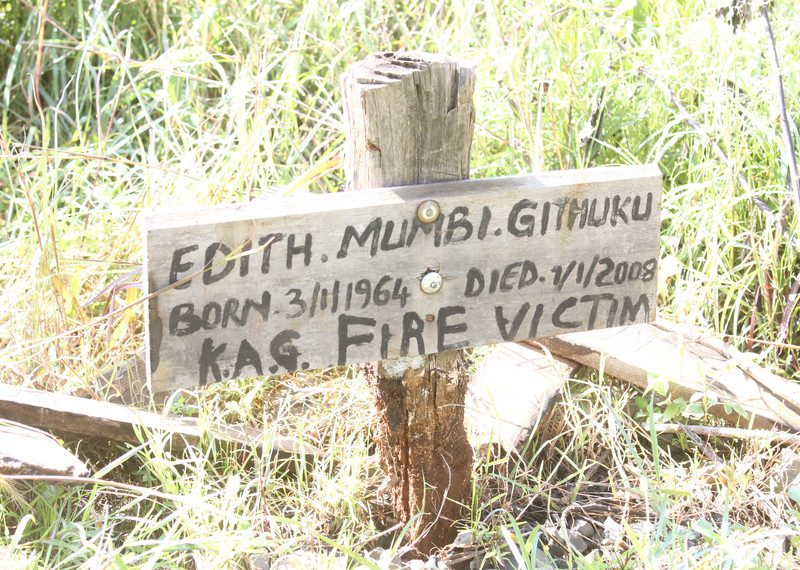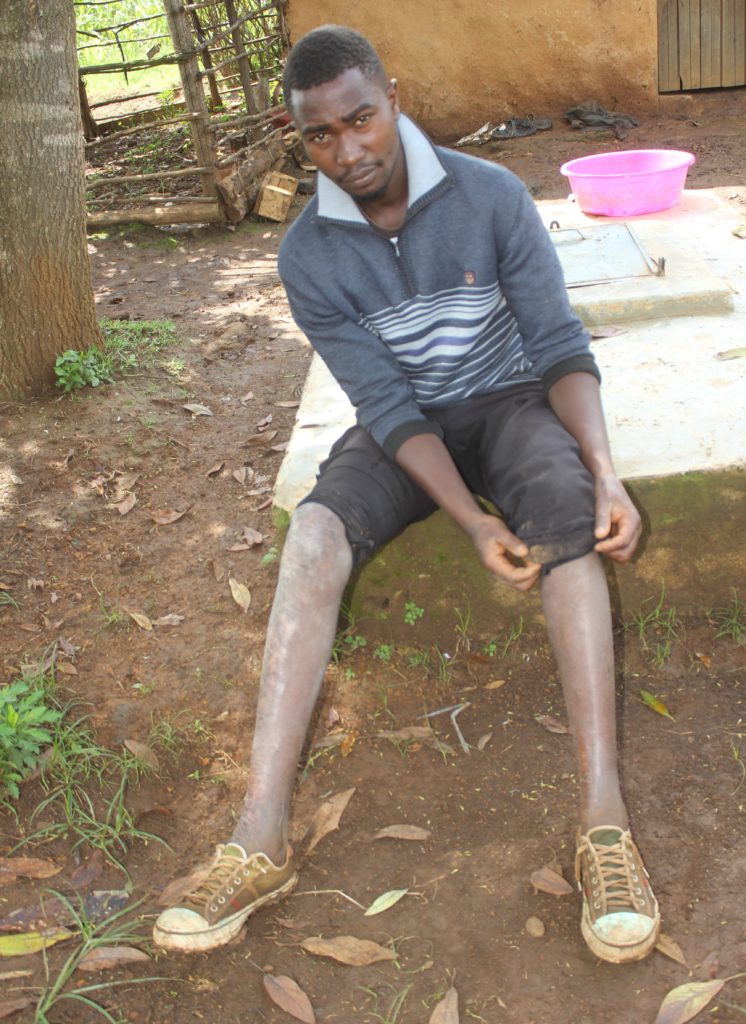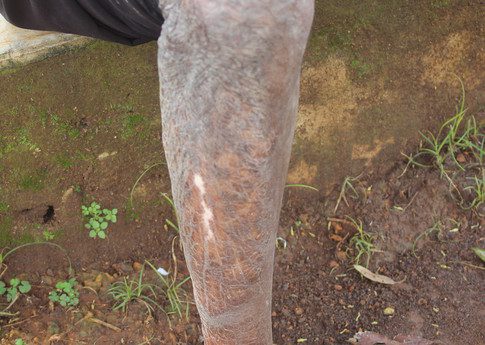A few hours to go to closely contested elections, Kenyans living in areas with a history of electoral violence are anxious. Survivors of previous electoral violence are still waiting for justice while root causes of electoral violence remain unresolved. Eldoret town saw some of the worst electoral violence 10 years ago following the 2007 General Elections. Amnesty International’s East Africa Researcher, Abdullahi Halakhe, visited Eldoret town ahead of the upcoming elections and spoke to survivors of the 2007-8 electoral violence.
Whenever a Kenyan athlete wins an Olympic medal, chances are that he or she is from Eldoret town, in Uasin Gishu County, in Kenya’s Rift Valley. Eldoret has produced more Olympic medallists than the rest of Kenya combined.
Eldoret, at an altitude of 2,100 metres above sea level, is known as “Home of the Champions” and is a popular high-altitude training site for both Kenyan and international athletes.

However, 10 years ago, this picturesque, agricultural heartland made it to global news headlines, not because of its athletes’ prowess, but instead electoral violence.
In the most shocking incident, on the eve of 2008, dozens of people, including children, were burned alive in a church. Those burned had sought refuge in Kiambaa church after fleeing Kimuri farm three kilometres away, following clashes between opposition and incumbent supporters. The victims were mostly Kikuyu, in an area predominantly occupied by the Kalenjin, who consider the North Rift their ancestral homeland.
The trigger for the violence was their perceived support for the different presidential candidates. The Kalenjin largely supported Raila Odinga, running on the Orange Democratic Movement (ODM) ticket and the Kikuyu largely supported Mwai Kibaki, of the Party of National Unity (PNU).
The electoral commission had declared Kibaki the winner after an unusually prolonged period of counting and tallying of the presidential results. He had been sworn in despite opposition protests and widespread concerns about the validity of the counting and tallying process.
In the post-electoral violence that ensued, more than 1,300 people were killed and over half a million others internally displaced. Individuals and groups allied to both PNU and ODM respectively, as well as the security services, committed crimes against humanity and the International Criminal Court (ICC) indicted six individuals including President Uhuru Kenyatta and his Deputy William Ruto and four others. The cases against Ruto and Kenyatta were ultimately suspended due to what the court said was witness interference.
New politics, old anxieties
In 2017, as in 2013, the incumbent Jubilee party’s presidential candidate and running mate are Kenyatta and Ruto, who comes from Eldoret.
The tightly-contested gubernatorial election pits incumbent Jackson Mandago, running on a Jubilee ticket, against Bundotich Zedekiah Kiprop “Buzeki”, who is running as an independent. Mandago comes from the Nandi Kalenjin sub-group, dominant in the area, while Buzeki is from the Keiyo Kalenjin sub-group.

Individuals affected by the 2007-8 electoral violence are anxious ahead of the 8 August 2017 General Elections.
Philip Kimunya, 26, narrowly escaped from the Kiambaa church fire 8. He pushed his hand through the fire to get out, his sight inhibited by the smoke from a burning mattress, and still has scars on his hands and legs from the burns he suffered.

He says, while his legs and hands have healed, he still harbours scars in his heart because reconciliation between survivors and perpetrators of the 2007-8 electoral violence has not taken place. While he is not anticipating a repeat of the 2007-8 electoral violence, he does not take the current calm in Kiambaa as a sign of lasting peace.
Joseph Mungai,a middle-aged man, says he knows the people who hacked his uncle to death with an axe: “They are our neighbours, we attend the same church and we have played sports in school together.”
While the process and contested outcome of the 2007 presidential election triggered the post-electoral violence, neither was the underlying cause of the electoral violence. The violence was an expression of a long-festering structural problem – land.
How can I be an invader when I bought this piece of land in 1969?
David Kiragu, a Kikuyu farmer, living in Eldoret, Kenya.
Given their unsettled grievances over colonial- and independence-era dispossession from their ancestral land, the Kalenjin view the Kikuyu as “invaders” who have come and taken over their ancestral land, an “us” and “them” view politicians still used by politicians to get votes.
David Kiragu, a Kikuyu farmer who bought land in Kiambaa in 1969, six years after Kenya’s independence asks, “How can I be an invader when I bought this piece of land in 1969?”
The anxiety is not limited to the Kikuyu alone. The Luo and the Luhya, who largely support the opposition presidential candidate, Raila Odinga, of the National Super Alliance (NASA), are worried they could be targeted for violence by Jubilee supporters because of their political position – supporting a NASA presidential candidate in a predominantly Jubilee area. Some have started moving into more cosmopolitan neighbourhoods of Eldoret, the county’s main town.
To allay these fears, Elijah Muchiri, a Kiambaa resident, says the government should deploy a sufficient number of police officers to provide security and enable the electorate to exercise their right to vote. The police officers should also respond as quickly as possible to any incident of electoral violence. Given the involvement of the security services in the 2007-8 electoral violence, the police must also be called upon to act independently and within constitutional and legal limits during the elections period.


